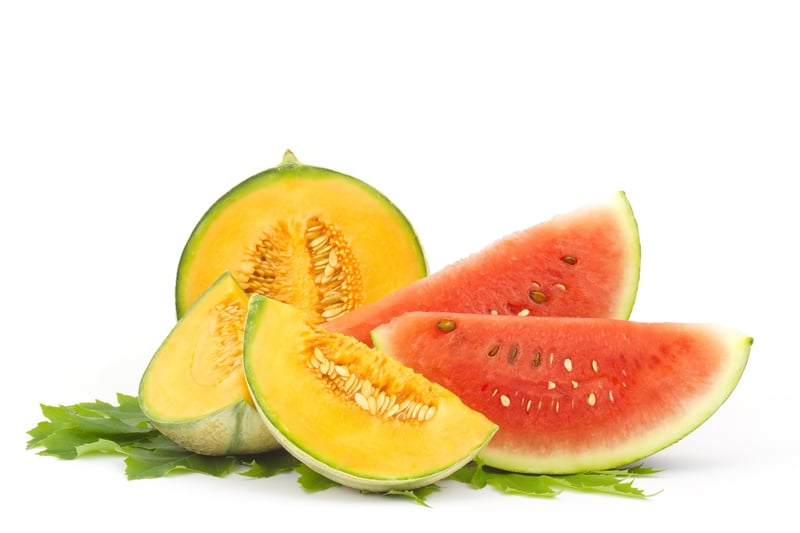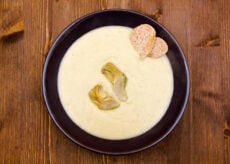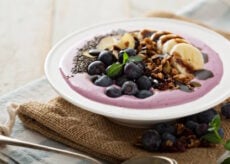9 Low-Sugar Fruits Perfect for Low-Carb Diets

If you’re following a low-carb diet, you may think you can’t eat anything sweet. Think again! Even if you’re limiting carbs, there’s a nice selection of low-sugar fruits to choose from that are perfect for this type of eating plan.
What Kinds of Sugars Are Found in Fruits?
It’s pretty well-known that fruits contain sugars (they are sweet, after all). But, not all fruits or sugars are the same. While there are many types of sugars, the main types of sugars often present in fruits are sucrose, glucose, and fructose. Sugars are further broken down into monosaccharides and disaccharides.
Sucrose is a disaccharide (which means it’s made of two molecules), while glucose and fructose are monosaccharides (that is, they have one molecule) and are the most simple form of sugar. Many fruits will contain one, more, or all of these types of sugars. If cutting down on carbs, choosing low-sugar fruits is the name of the game, but it’s only one part of the equation.
Offset Sugar with Fiber
Fiber is your secret weapon when it comes to offsetting the sugar you get when you eat fruits (and other carbohydrates). Fiber helps offset the carbs you get from the sugars in foods as it helps slow the digestion and absorption of the sugars. Fiber, itself, is also not digested, so it gets swept out of your system, often carrying with it fats, calories, and waste products.
What’s the secret formula to calculate how many carbs you’re really getting when you eat fruits with high fiber content? It’s called using the “net carbs” number. Net carbs are the grams of total carbs minus the grams of fiber. Use this number to determine the total number of usable carbs in your food.
Low-Sugar Fruits for a Low-Carb Diet
1. Blackberries
6 grams of Net Carbs per cup
These little powerhouses boast eight grams of fiber per serving and about half your daily allotment of vitamin C. While they may not be as sweet as some of their counterparts, their high fiber and antioxidant content make them the perfect low-carb snack.
2. Strawberries
8 grams of Net Carbs per cup
Always a popular choice because of their deliciousness and their beautiful coloring, strawberries are a fan favorite across the board. Eat them fresh or use them frozen to boost the sweetness and thicken the texture of smoothies.
3. Cantaloupe
11.4 grams of Net Carbs per cup
This melon is an old standby when it comes to both low-calorie and low-carb living. Satisfying with a rich, juicy texture, this fruit is also high in vitamin C and potassium to help keep your heart healthy and normalize blood pressure.
4. Plums
6.5 grams of Net Carbs per piece of fruit
This purple powerhouse packs a punch with its high-fiber and nutrient-dense content. Plums also help your body produce adiponectin, which has been shown to help keep blood sugar in check. Plums have even been shown to help ward off bone loss when eaten dried.
5. Raspberries
4 grams of Net Carbs per cup
These little fruits are super high in fiber and do really well as a frozen snack. Not too sweet but not too sour, these are the perfect addition to a low-sugar or low-carb eating plan.
6. Watermelon
11 grams of Net Carbs per cup
Another melon favorite, watermelon is loaded with nutrients, boasts a high fiber and water content, and has a deliciously sweet flavor that’s hard to beat.
7. Coconut
5 grams of Net Carbs per cup of shredded coconut
Coconut is often overlooked as a low-carb fruit, probably due to its higher fat content. Very satisfying and with a subtle, delicious sweetness, coconut is a great choice if you want something sweet, but you’re trying to follow a keto diet.
8. Avocado
1.4 grams of Net Carbs per half cup
Another low-sugar, high healthy fat favorite, this fruit also provides plenty of potassium for heart health. And, the high-fat content makes it extremely satisfying, especially when you’re trying to keep carbs and sugar in check.
9. Starfruit
3.5 grams of Net Carbs per piece of fruit
While this fruit is lesser known, it’s perhaps one of the lowest carb-containing fruits around. What’s more, it may help protect the immune system and boost heart health. If you want to stay ultra-low sugar, this unusual yet refreshing fruit should definitely be on your grocery list.
There are many more options to choose from on the low-sugar fruits list. Branch out with some variety, different colors, and different textures and figure out your favorites.
Lastly, remember that when you’re on a low-carb diet, the goal is to keep your blood sugar levels stable and prevent them from spiking. Yes, these fruits are, in fact, low sugar, but to ensure you keep your blood sugar levels in check, try to combine the timing of your fruits to meals when you’re also eating protein. This will help your body maintain its status quo, and you’ll still be able to have your fruit and eat it too.





 7 Signs Your Body is Seriously Low on Collagen (not just wrinkles)
7 Signs Your Body is Seriously Low on Collagen (not just wrinkles) Health Expert: "Turmeric Doesn't Work (unless...)"
Health Expert: "Turmeric Doesn't Work (unless...)" 3 Warning Signs Your Probiotic Supplement is a Total Waste
3 Warning Signs Your Probiotic Supplement is a Total Waste

